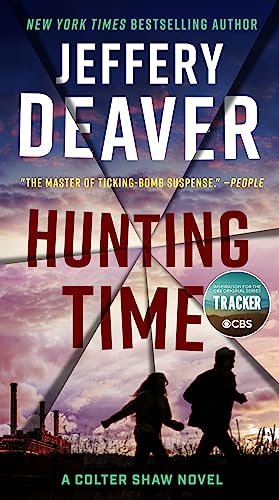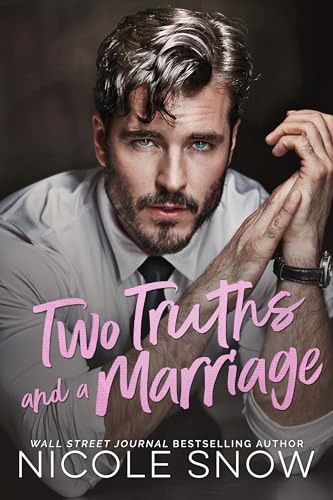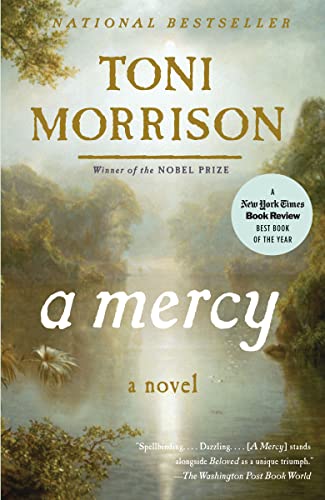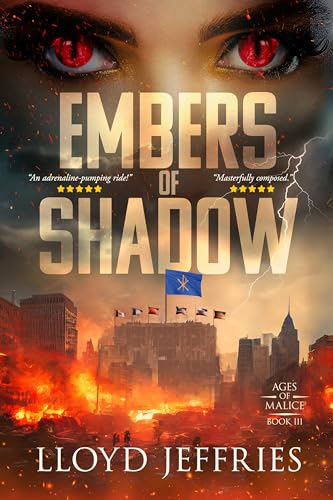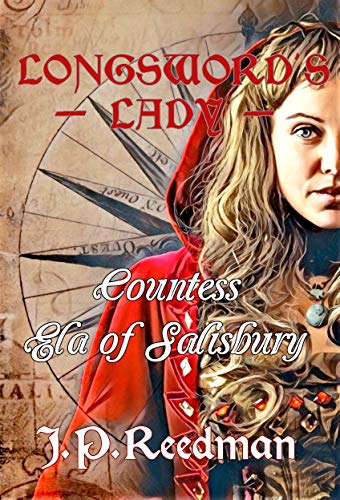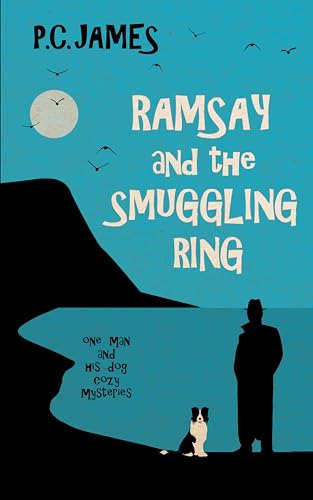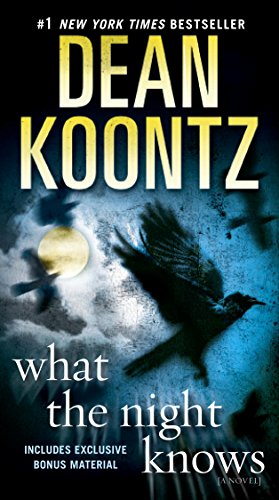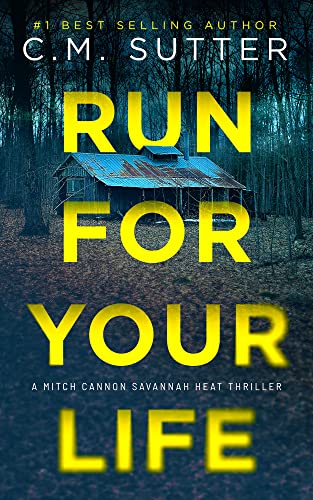Welcome to Scary Saturday for July 24, 2010
For the past year our Free Kindle Nation Shorts program has been connecting thousands of Kindle readers with emerging and established writers, and we’re proud to have helped many writers of distinction climb the Kindle Store bestseller lists. One of those authors has been Joe Konrath, and it has been a lot of fun to watch such a talented storyteller become one of the most successful fiction writers in the Kindlesphere. Joe has also been a very important trailblazer in the world of writing and independent publishing, so I was especially pleased when he decided recently that he wanted to give something back to the citizens of Kindle Nation by providing the stories on which we are drawing to initiate a new Free Kindle Nation Shorts feature called “Scary Saturday.”
We’ll continue to showcase many other writers here at Free Kindle Nation Shorts, but on many coming Saturdays we’ll treat you to truckloads of terror with the horror fiction of J.A. “Joe” Konrath. We’ll also provide links to his current and coming Kindle books and we hope you’ll be brave enough to turn all the lights on and keep reading.
Check out the latest bestsellers by J.A. Konrath, just $2.99 in the Kindle Store!
The Newbie’s Guide to Publishing
(Everything A Writer Needs To Know)
or scroll to the end of the story to read more about Joe Konrath
* * * * *
“Forgiveness“
a short story by Jack Kilborn, J.A. Konrath
|
Copyright © 2010 Joe Konrath and published here with his permission
Author’s note: The toughest horror magazine to get into is Cemetery Dance, and I sent them a few things before they finally published this one. Odd thing though, they never gave me a formal acceptance, or a contract, or a check. I only knew it saw print because some guy at a writing convention brought a copy up to me to sign.
-J.K.
The woman putting the tube into my penis has cold hands. She’s younger than I am—everyone is younger than I am—but she betters me in the wrinkle department; scowl lines, frown lines, deep-set creases between the eyebrows. The first woman to touch my peter in fifty years, and she has to be a gargoyle.
I close my eyes, wince as the catheter inches inward, my nostrils dilating with ammonia and pine-lemon disinfectant and something else that I knew so well.
Death.
Death has many smells. Sometimes it smells like licking copper pennies out of used public washrooms. Other times it smells like cold cuts pickled in vinegar, left in the sun to rot.
On me it smells sour. Gassy and bloated and ripe.
“There you go, Mr. Parson.” She pulls down my gown and covers me with the thin blanket. Her voice is perfunctory, emotionless.
She knows who I am, what I’ve done.
“I’d like to talk to someone.”
“Who?”
“A priest.”
She purses her lips, lines deepening around her mouth in cat whisker patterns.
“I’ll see what I can do.”
The nurse leaves.
I stare at the white cinder block walls over the hump of my distended stomach. Edema. My body can no longer purge itself of fluid, and I look ten months pregnant. The morphine drip controls the worst of the pain, the sharp stuff. But the dull, cold ache of my insides rotting away can’t be dampened by any drug.
The room is cool, dry, quiet. No clock in here. No TV. No window. The door doesn’t have bars, but it is reinforced with steel and only opens with a key.
As if escape is still an option.
Time passes, and I go into my mind and tried to figure out what I want to say, how to say it. So many things to straighten out.
The next thing I know the priest is sitting beside the bed, nudging me awake.
“You wanted to see me, Mr. Parson?”
Young, blond, good-looking, his Roman collar starched and bright. Youthful idealism sparkles in his eyes.
Life hasn’t knocked the hope out of him yet.
“Do you know who I am, Father?”
He smiles. Even white teeth. Little points on the canines.
“I’ve been informed.”
I watch his face. “Then you know what I’ve done?”
“Yes.”
I see patience, serenity. Old crimes don’t shock people–- they have the emotional impact of lackluster history books.
But the crimes are still fresh in my mind. They’re always fresh. The images. The sounds.
The tastes.
“I’ve killed people, Father. Innocent people.”
“God forgives those who seek forgiveness.”
My tongue feels big in my mouth. I speak through trembling lips. “I’ve been locked up in here since your parents were babies.”
He rests his elbows on his knees, leaning in closer. His hair smells like soap, and he’s recently had a breath mint.
“You’ve spent most of your life in this place, paying your debt to society. Isn’t it time to pay your debt to the Lord?”
And what of the Lord’s debt to me?
I cough up something wet and bloody. The priest gives me a tissue from the bedside table. I ball it up in my fist, squeeze it tight.
“What’s your name, Father?”
“Bob.”
“Father Bob—I’ve got cancer turning my insides into mush. The pain, sometimes, is unbearable. But I deserve that and more for what I’ve done.”
I pause, meet his eyes.
“You know I was once a priest.”
He pats my hand, his fingers brushing my IV.
“I know, Mr. Parson.”
Smug. Was I that smug, when I was young?
“I’m in here for killing twelve people.”
Another pat on the hand.
“But there were more than twelve, Father.”
Many more. So many more.
His complacent smile slips a notch.
“How many were there, Mr. Parson?”
The number is intimate to me, something I haven’t ever shared before.
“One hundred and sixty-seven.”
The smile vanishes, and he blinks several times.
“One hundred and—”
I interrupt. “They were children, mostly. War orphans. No one ever missed them. I’d pick them up at night, offer them money or food. There was a place, out by the docks, where no one could hear the screams. Do you know how I killed them?”
A head shake, barely perceptible.
“My teeth, Father. I tied them up—tied them up naked and filthy and screaming—and I kept biting them until they died.”
The priest turns away, his face the color of the walls.
“Mr. Parson, I…”
The memories fill my head; the dirty, bloody flesh, the piercing cries for help, the wharf rats scurrying over my feet and fighting for scraps…
“It isn’t easy, Father, to break the skin. Human teeth aren’t made for tearing. You have to nip with the front incisors until you make a small hole, then clench down hard and tug back, putting your neck and shoulders into it. It took a long time. Sometimes hours for them to die.”
I sigh through my teeth.
“I’d make them eat bits of themselves…”
The priest stands, but I grab his wrist with the little strength I had left. He can’t leave, not yet.
“Please, Father. I need Penance.”
He takes a breath, stares at me. Watching him regain composure is like watching a drunk wake up in a strange bed. He manages it, finally, but some of that youthful idealism is gone.
“Are you sorry for what you’ve done?”
“I’m sorry, Father.” The tears come, a rusty faucet that has gone unused for years. “I’m sorry and I beg for God’s forgiveness. I’m…so…alone. I’ve been so alone.”
He touches my face as if petting a crocodile, but I’m grateful for the touch.
The tears don’t last long. I swat them away with tissue.
Together we say the Act of Contrition.
The words are familiar on my tongue, but my conscience isn’t eased.
There’s more.
“Rest now, Mr. Parson.” He makes the sign of the cross on my forehead with his thumb, but his eyes keep flitting to the door, the way out.
“Father…”
“Yes?”
I have to proceed carefully here. “How strong is your faith?”
“Unshakable.”
“What if…what if you no longer needed faith?”
“I will always need faith, Mr. Parson.”
For the first time since his arrival, I allow myself a small smile. “Not if you have proof.”
“What do you mean?”
“If there is proof that God exists, you’d no longer need faith. You would have knowledge— tangible knowledge.”
He narrows his eyes. “You have this proof? A lapsed priest?”
“Defrocked, Father. My title was stripped.”
“Of course it was. You killed…”
I sigh, wet and heavy. “You misunderstand, Father Bob. They didn’t defrock me because of the murders. My vocation was taken away from me because I knew too much.”
I lower my voice so he must lean closer to hear me.
“I KNOW God exists, Father.”
The priest frowns, folds his arms.
“The great mystery of Faith is that we accept God without knowing. If God wanted us to truly know, he would appear on earth and touch us.”
I raise my hand, point at him.
“You’re wrong there, Father. He has come down and touched us. Touched me.” This is the tricky part. “Would you like to see the proof?”
I almost shout with glee when he nods his head.
“Sit, Father Bob. This story takes a while.”
He sits beside me, his face a mixture of interest and wariness.
My mouth is dry. I take a sip from a cup of tepid water, soak my tongue.
“Fresh from the Seminary, I was sent to Western Samoa, a group of islands in the South Pacific. It’s tropical paradise, the population predominantly Christian. A garden of Eden, one of the most beautiful places on earth. Except for the hurricanes. I arrived after a particularly devastating storm wiped out most of Apia, the capitol.”
It comes back in fragments, a series of faded snapshots. After a twenty hour plane ride, I landed in little more than a field. The island air and deep blue beaches were a stark contrast to the wholesale destruction throughout the land. I saw livestock rotting in trees. Overturned cars with little brown arms jutting out crookedly beneath them. Roofs in the middle of streets, and jagged pipes planted in piles of rubble where schools once stood.
Worst of all was the constant, keening sob that hung over the city like a cloud.
So many ruined lives.
“It looked like God had smashed His mighty fist down on that country. How could He have allowed this? I had to assist in the amputation of a man’s legs, without anesthetic because there was none left. I had to help mothers bury their babies using gnarled traffic signs to dig graves. I gave so much blood I almost died myself.”
“Natural disasters are a test of one’s faith.”
I shake my head.
“It didn’t test mine. I was sure in my faith, like you are. But it made me question God’s intent.”
“We cannot question God, Mr. Parson.”
“But we do anyway, don’t we?”
I sip more water before I continue.
“In Western Samoa, I did God’s work. I helped to heal. To rebuild. I restarted the parish. I preached to these poor, proud people about God’s grace, and they believed me. Things slowly got back to normal. And then the murders began.”
I close my eyes and see the first body, as if it is in the room with me now. The eyes jut out of the bloody, ruined face like two golf balls pushed into the meat of a watermelon. The flesh is peeled away, in some places exposing pink bone. A rat pokes its greasy head out of a lacerated abdomen and squeals in gluttonous delight.
“Every seven days, another mutilated body was discovered. The police didn’t seem to care. Neither did my congregation. They accepted it like they accepted the hurricane; sad but unavoidable.”
Father Bob folds his arms, eyebrows furrowing.
“Were you killing those people, Mr. Parson?”
“No…it turned out to be one of my parishioners. A fisherman with a wife and three kids. He came to me just after he butchered one—came into my Confessional drenched in blood, bits of tissue sticking to his nails and teeth. Begged me for forgiveness.”
The man had been short, painfully thin for a Samoan. His eyes were the eyes of the damned, flickering like windblown candles, both insane and afraid.
“He claimed he was a victim of a curse. A curse that had been plaguing his island for millennia.”
“Did you dismiss his superstitions?”
“At first. While Christians, the islanders had a distant connection to paganism, sometimes fell back to it. I tried to convince him the curse wasn’t real, to turn himself in. I begged him that God didn’t want any more killing.”
I was so earnest, so full of the Word. Convinced I was doing God’s work.
“He laughed at me. He said that killing is exactly what God wanted.”
The priest shakes his head. He speaks with the sing-song voice of a kindergarten teacher. “God is all-loving. Killing is a result of free-will. We had the paradise of Eden, and chose knowledge instead of bliss.”
I scowl at him.
“God created mankind knowing that we’d fall from grace. It’s like having a child, knowing a child will be hungry, and then punishing the child for that hunger.”
Father Bob leans in, apparently flustered. “God’s grace…”
“God has no grace,” I spit. “He’s a vengeful, vindictive God. A sadist, who plays with mankind like a child pulling the wings off of flies. Samoa was Eden, Father. The real Eden, straight out of the Bible. The murderer, he showed me a mark on his scalp.”
I lift up my bangs, reveal the Mark at my hairline.
“Witness, Father Bob! Proof that God truly exists!”
The priest opens his mouth. It takes a moment before words came out.
“Is that…?”
I nod. I feel inner strength, the strength that had forsaken me so long ago.
“It’s the Mark of Cain, given to the son of Adam when he slew Abel. But the Bible was inaccurate on that point—Cain didn’t wander the earth forever, but his curse did, passed on from man to man for thousands of years. Passed on to me from the murderer in Samoa.”
The Mark grows warm on my head, begins to burn.
“This is your proof of God, Father.”
He stands abruptly, his chair tumbling backwards. I grin at him.
“How does it feel to no longer need faith?”
Father Bob falls to his knees, weeping.
“My God…my sweet God…”
Abruptly, blessedly, the burning sensation disappears. I laugh, laugh for the first time in decades, laugh with a sense of perfect relief.
Father Bob presses his hands to his forehead. He screams, just once, a soul shattering epiphany that I understand so well.
“The Lord be with you, Father Bob.”
And then he falls upon me, mouth open.
I try to push him away, but am no match.
His first few bites are awkward, but he quickly learns my technique.
Nip.
Clench.
Pull.
The pain is exquisite. So much worse than cancer.
So much better…
* * * * *
If you liked this story and dare to read more by Jack Kilborn/J.A. Konrath, click here.
|
|||

